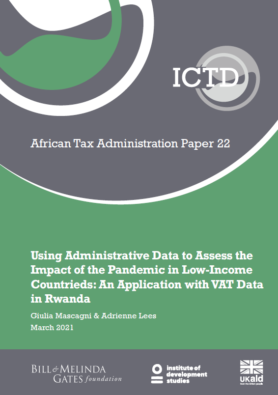ATAP 22
This paper uses administrative data from Value Added Tax (VAT) returns to provide insights on the impact of the COVID-19 pandemic in Rwanda. We show that the lockdown in Rwanda had a severe impact on the domestic economy, despite relatively low case numbers. However, the economy quickly rebounded after restrictions were lifted, with overall sales losses amounting to 5 per cent of GDP.
Although in absolute terms, these losses are concentrated amongst the largest firms, in proportional terms, small firms have been worse affected. We also show that firms providing accommodation, food and transport services, as well as those based in the capital, have been particularly affected by the crisis.
Overall, the decline in economic activity translates to a 5.1 per cent loss in VAT revenue for the government. Our results offer policymakers evidence on the real impact of the crisis, both in aggregate terms and disaggregated by firm size, sector, and location. In a literature that has largely focused on higher-income countries, these results complement projections to inform appropriate policy responses in the specific context of low-income countries.

